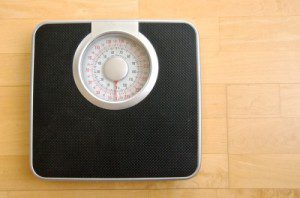 A few years ago, Mayor Bloomberg created quite a stir in his efforts to regulate soda drinking in New York City. The idea was to regulate private citizens in terms of what they can or cannot eat in an effort to find a solution to the obesity problem.
A few years ago, Mayor Bloomberg created quite a stir in his efforts to regulate soda drinking in New York City. The idea was to regulate private citizens in terms of what they can or cannot eat in an effort to find a solution to the obesity problem.
Soda is one of many food items that when over consumed, leads to weight gain. But can we go down this path to loose weight–limited the number of fries at the fast food take out, no more dozen donuts orders, pizza for one…you get the idea. We can’t have the Twinkie Police entering our homes. We have to take personal responsibility when it comes to losing weight so here are a few tips to help:
1) Portion control is an issue. Most times, the portions we are given at restaurants could serve 2-3 people. Just like sodas that have gone from an average of 6 ounces a drink to 16 ounces, so have food portions. We need to learn to eat until we are full, stop, take home the rest for another time. Or order an appetizer as the main meal, split a meal or ask for a smaller portion.
2) One of the most overlooked areas in the obesity fight is emotional and compulsive overeating. Instead of focusing exclusively on what we eat, we need to think about WHY we eat. In my book, Press Pause Before You Eat, I help you become more intentional with your eating, recognize the emotional triggers and come up with other things to do than eat, especially when dealing with stress.
3) Telling you not to eat or drink something just makes you want to do it more. Deprivation doesn’t work when it comes to weight loss. The more we know we can’t have, the more we want it. Instead, we tell ourselves we can have an item but then, PAUSE, and ask, do we want to pay the consequences later?
4) What we eat is important. We eat too much processed food and nutritionally empty food so books like Eat This, Not That are helpful in the education of food as medicine. Education doesn’t always translate to better choices. You have to want to do better with food. Only you can motivate yourself to care and make better choices.
5) Information is confusing. At one point, for example, coffee was bad for us, then good. The amount of information we have regarding how to lose weight is overwhelming and needs to be individualized. One size does not fit all when it comes to losing weight.
6) It’s complicated. Losing weight doesn’t work like the Biggest Loser for most people. We don’t have trainers screaming at us to make us move or people controlling our diet. And in the long run, most of the people on those shows gain the weight back after a year or so. Lifestyle change is needed. Losing weight involves movement, food, genetics, biological issues, emotional and even spiritual issues. In the end, it is you and that fork and plate. No short cuts to making lifestyle changes. It takes intention, commitment and effort. Still, it is possible, just not easy!


